William linked me to an interesting article today on IGN where two of its writers, Erik Brudvig and Hilary Goldstein, published an article that lambastes the quality of Square-Enix’s work as a developer of RPGs (the omission of JRPG was intentional, as both Erik and Hilary did not make such a reference either).
It was quite frankly, ridiculous. Having ruined their credibility five sentences into their first point, both Erik and Hilary make themselves victim to the one of the core reasons why JRPGs have suddenly lost so much appeal in the West. William and I couldn’t seem to contain ourselves and have consequently chosen to publish a rebuttal against such a carelessly ignorant article.
“We give the storied RPG publisher some tips on getting its next game right.
William says: Instead readers are subjected to a poorly written editorial on how much the Xbox 360 editors on IGN praise the model of Western RPGs as the Holy Grail and tell the famed RPG publisher, Square, “… to suck up its pride and start playing some Western RPGs.” In their “prescription” to remedy the nuances of what they perceived as “wrong”, they ultimately fall flat on their face and instead render the image of a western media publication that is too self-appraising of its culture to understand the differences inherent in Japanese role-playing games.
Taking Will’s lead, let’s take it step by step.
1. Learn to Use the Unreal Engine
Or just ditch it. The quality of the Square Enix Xbox 360 releases has been dragged down by crummy technical issues that shouldn’t be a problem in high quality RPGs. Infinite Undiscovery has framerate issues. The Last Remnant has them worse — and it’s a turn-based game where relatively little is happening on-screen at once. Both use Epic’s Unreal Engine 3. Write The Last Remnant off as running better with a hard drive install all you want, but the fact of the matter is Square Enix released a game that performs poorly on the hardware SKU (Xbox 360 Arcade) Microsoft is pushing the hardest this fall.
One game could be seen as a fluke. Two is a trend. It’s time that the powers-that-be at Square Enix take a long hard look at the tools the company is using to make its games. If the Unreal Engine 3 isn’t working, scrap it and move on before the Square Enix brand gets tarnished.
While this point has its own merits, I fail to see how learning to use the Unreal Engine (or ditching it) is functionally relevant to “fixing Square’s RPG machine” as Erik and Hilary so confidently phrased. What’s more, any integrity these two writers had at using this point to sell their theory went completely downhill the moment they said Infinite Undiscovery uses the Unreal Engine 3. This is a ridiculously hilarious blunder. Infinite Undiscovery–and let’s ignore the fact that it was developed by Tri-Ace, not Square-Enix–used an in-house engine. I have absolutely no clue where Erik and Hilary got this fact from, but evidently the source lacks any credibility in the same way Erik and Hilary lost all of theirs the moment they made such a claim.
“One game could be seen as a fluke. Two is a trend.”
Yet another incorrect statement after one realizes that Infinite Undiscovery was neither developed by Square-Enix nor did it use the Unreal Engine 3. Erik and Hilary infer the causality of the frame rate issues based on this erroneous assumption, when in reality, other than the fact that both games have the Square-Enix logo on the game case, the frame rate issues in both titles are mutually exclusive. This is because Infinite Undiscovery was developed by a completely different company and The Last Remnant was the only game using the Unreal Engine 3. Frame rate is undeniably an issue in both titles, but inferring a trend in Square-Enix’s RPG quality based on this is unfounded as The Last Remnant is the first Square-Enix developed RPG title for the consoles since Final Fantasy XII. If this happens again in Final Fantasy XIII I’ll gladly reconsider.
2. Upgrade the Presentation
Back in the day, the CG cutscene ruled the RPG world. They have largely gone the way of the dodo, with just a few popping up here or there. Whether that makes you sad is a matter of taste, but what we have gotten as a replacement is hardly satisfactory. In-engine cutscenes have the potential to look fantastic, but using the same engine that doesn’t work well for you and the same animations we’ve seen since the PS1 era doesn’t do it for us.
Animations don’t make or break a game, but they can add a lot to the sense of immersion RPGs would hope to convey. People don’t wave back and forth slowly while they stand in one place. They don’t move stiffly. And more than just the lips move when somebody talks.
If the story is important to your game — and in an RPG it should be — then you had better make sure you present it in the best possible way. That also means doing away with text-box cutscenes. If Square Enix wants to compete with Western developers, it needs to voice every major conversation. The company is simply being outhustled right now.
CG cutscene ruled the RPG world back in the day? I have absolutely no idea where this statement would be true when CG cutscenes, ever since I can remember, have always been scarce. They take up a lot of damn space, and anyone who’s been paying attention knows that this is why you couldn’t have so many in a single video game. Square’s CG cutscenes have always been one of the most memorable ones, but these were always limited to just a handful and only in later years when the CD-R became the DVD-R and now the HD-DVD and Blu-Ray can we be spoiled with more of these CG scenes. I challenge Erik and Hilary to provide me with an abundance of examples from ‘back in the day’ that show how CG ruled the RPG world, because clearly I’m out of the loop.
Square-Enix has been using the same animations we’ve seen since the PS1 era? Do they even recall how animations looked in the PS1 era? Maybe Erik and Hilary have forgotten, but characters in FFVII had blocks for hands and simply twitched all the time while engaging in conversation. FFVIII improved on this significantly, with Squall having distinguishable looking fingers and a more realistically proportioned body, but the fact that these two writers can insinuate that The Last Remnant’s animations are the same as those of the PS1 era is hysterical. Both Infinite Undiscovery and The Last Remnant use motion-capture technology, which was non-existent in game development during the PS1 era and they claim them to be the same? Bollocks. They should re-familiarize themselves with the archaic nature of PS1 animation before making such a grand claim.
3. Evolve the RPG Elements
Let’s face it, most Japanese-developed RPGs still use the same design philosophy that worked 20 years ago. Just about every Square-Enix RPG has towns you walk around in, with dozens of people you speak with for no reason. There are poorly conceived fetch quests and uninspired city designs. The popular comes off as a bunch of animatronics from a Disneyland attraction there to repeat the same line over and over. It’s time for a change.
More and more Western RPGs are creating interesting cities with people that feel as if they exist even when you’re not around. One way to remove unnecessary conversations is to display names over the heads of all citizens, with unimportant NPCs being named “Shopkeeper” and “Millworker” while those who matter can be “Jim the Barber” or what not. The most recent Square-Enix RPGs have large, empty, uninteresting towns that seem there more out of habit than necessity.
Square-Enix needs to suck up its pride and start playing some Western RPGs. Let Mass Effect, Fallout 3 and Fable II inspire you. This doesn’t mean you have to provide morality choices, but you should endeavor to create cities that feel lived in with citizens who have a place within the community.
Has no one ever thought of these people as a device to help the player understand more about their surroundings and add breadth to the overall experience? While these editors may dismiss these NPCs as irrelevant, the reason it has remained a staple of Square-Enix’s RPGs is that it encourages the player to invest time in their world and notice subtle details of the crafted fiction.
Just about every Square-Enix RPG has towns you walk around in, with dozens of people you speak with for no reason, poorly conceived fetch quests and uninspired city designs, they say. Spooky how one could easily surmise the same thing about WRPGs if they so desired. Quite frankly, I’d say Japanese developers have some of the most artistic city designs in the industry. Of course, saying so would really be just an opinion, so just as my aesthetic tastes may not be like someone else’s, so too are Erik’s and Hilary’s and thus the entire debate on city designs and fetch quests (which is also quite an generalization) is yet again irrelevant in supporting why Square’s RPG machine needs fixing. On the topic of “poorly conceived fetch quests” and “dozens of people you speak with for no reason”, this is an unfair comparison when JRPGs and WRPGs are structured in completely different ways. It is also a completely weak argument to debate such trivial matters such as how to name NPCs. Sorry, but adding “Jim the Barber” over someone’s head does not make a conversation with him any less ‘unnecessary’ if he has absolutely no connection to the game’s plot.
Now, I love how Erik and Hilary advise Square-Enix to “suck up its pride” (as if to say: we in the west are now better than you at making RPGs) and to “start playing some Western RPGs” (as if they’re indisputably better) and be ‘inspired’ (as if Japanese people are no longer creative) by titles like Mass Effect, Fallout 3 and Fable II when these three titles are exactly how JRPGs and WRPGs differ in its greatest respect: linear vs sandbox storytelling. Was such a difference ever apparent to Erik and Hilary? And did it ever occur to them to wonder why there is this significant pattern between JRPGs and WRPGs? In a nutshell, it’s culture.
Unfortunately, I refuse to go into any great detail about that as I’d rather save it for an editorial I plan to write in the future, but in summary, the structure and development of JRPGs are undeniably a reflection of their cultural values. It’s not a mystery to see why then that Japanese gamers play and love their JRPGs because they not only enjoy them, but they also understand them. It is also then, unsurprising why so many people here in the West consequently dislike JRPGs, since their structure and presentation are fundamentally shaped by Japanese culture. So saying that Square-Enix should learn from titles like Mass Effect, Fable 2 and Fallout 3 is like saying “Try to be more Western, because our way is better.”
4. Flesh Out Your Gimmicks
Infinite Undiscovery has a flute that often serves no purpose and The Last Remnant has unions which don’t fully make sense. As far as IU’s flute goes, it was an interesting idea that never fully formed. The flute was your hero’s version of magic, but for a good portion of IU, it was pretty much unnecessary. The non-combat properties were made too obvious (you can “see” the invisible areas you are supposed to reveal with the flute) and using the flute in combat meant you were just standing around unable to attack.
The unions in The Last Remnant is an attempt to add some strategy to the combat, but is just too simplistic to work well. The unions you create separate from you in combat, giving a sense of a larger battle. But having no direct control over your unions is actually too limiting. It doesn’t help that none of the characters you can recruit are better than the six characters available from the get go.
So how can this be fixed? Make certain that whatever the gimmick is for the next Square-Enix game, it is integral to the story and is a primary focal point when designing gameplay. The gimmick needs to become the star in some way, instead of feeling like an idea tacked on halfway through development. Give greater thought to the gameplay elements and how they can be given greater depth.
Finally, a point that actually makes some sense. The unions in The Last Remnant are debatable in terms of just how “limiting” it is, but once again, criticizing Infinite Undiscovery’s flute gimmick is completely irrelevant to bettering “Square’s RPG Machine” when the game was developed by Tri-Ace. It really amazes me how so many people are unaware of this fact, and still muster the confidence to post such critical editorials while remaining so ignorant. Characters you recruit are never better than the first six you get because they were never meant to be. You’re recruiting soldiers, not superstars. If you stepped into the Golden Chalice and recruited someone more powerful than Athlum Generals like Torgal or Emma, logic would begin to question how such a character became so strong while being only a hired mercenary? More so, there would have to be a particularly compelling reason for such a circumstance than simply “I walked into a guild and recruited Awesome Mercenary #4, who so happens to be stronger than a General of an entire country.”
5. More is Not Always Better
Just because your game is 50 hours long, it doesn’t mean that all 50 of them are necessary. Just because you have a ton of characters in the game, it doesn’t mean that gamers will be excited to use them all. It’s important to provide a sense of focus.
There seems to be this belief that an RPG is worthless if it isn’t a 50 hour epic. We’re all for getting the most out of our games, but simply cramming extra generic battles or extended boring dungeons into a game doesn’t make it better. In role-playing games, it’s often the choice to extend your game that is most important. Forcing a long game just makes it tedious.
The same goes for playable characters. Infinite Undiscovery had over a dozen playable characters and forces the player to use all of them rather than allowing them the choice of which to enjoy. The Last Remnant swings the pendulum in the opposite direction and offers even more playable characters, though no party members are required. The trouble there is that every single optional character you can recruit for your party is worse than the six you start the game with. Neither option shows focus on what the player might enjoy and instead forces the issue.
I’m not quite sure how this point is inherently Square-Enix’s problem when so many other developers have made this mistake. This is more of a general tip to any aspiring RPG developer, and it’s quite peculiar of Erik and Hilary to pin this on Square-Enix, yet again. “Forcing a long game just makes it tedious” is a true statement, but if you skip out on sidequests and ignore supplementary tasks like finding/synthing the best gear, collecting rare items, etc, there are very few JRPGs that I can think of that exceed the 20-30 hour range.
Again with the Infinite Undiscovery jargon so I’m ignoring that, but after seeing how Erik and Hilary have recycled the ‘recruits are worse than the six you start with’ argument, I can’t help but feel like they’ve tried far too hard to nitpick at Square-Enix’s apparent shortcomings. But since they’ve given it such dedication, I might as well too.
So Erik and Hilary are now using the recruits-weaker-than-original-six argument to support how more cast members are not better. In Infinite Undiscovery this is most definitely true–although once again, please redirect this criticism to Tri-Ace, as I totally agree it’s a good point–but in Last Remnant, the battle system uses unions. The argument here is a bit misguided, since instead of “More is Not Always Better”, the question you ask yourself in The Last Remnant is if “More is Not Always Needed”. Battles can get rough, and often times you are sourly outnumbered by enemy ranks. In most cases, it is important to have as many characters as possible to fill up your unions since it increases your chances of survival–as the union’s HP is not only a total of all its constituent party members, but also shared among them. This only furthers the emphasis on each union being perceived as single ‘units’, and not each party member being looked individually. Recruits were never meant to be anything special, but rather, they are there to support your lead ranks like Athlum’s Generals and Rush Sykes. This amazingly goes back to the cultural argument I prefaced earlier on, but once again I withhold going into that discussion here.
The point to take home here is that JRPGs are at the end of the day, made by Japanese people with the Japanese people in mind. Localizations do exist, but JRPGs are inherently made for the people of its land. It has its own style and flavour that is reminiscent of a culture that is significantly different from our own. It is not only arrogant, but also ignorant of Erik and Hilary to not only suggest that Square-Enix follow in the footsteps of developers like Bethesda and Lionhead, but to also say that doing so will make their games better. But this is not the first time in history that the Western mind has claimed to be better than the East, and certainly not the first time the West has ever tried to push its culture onto it.

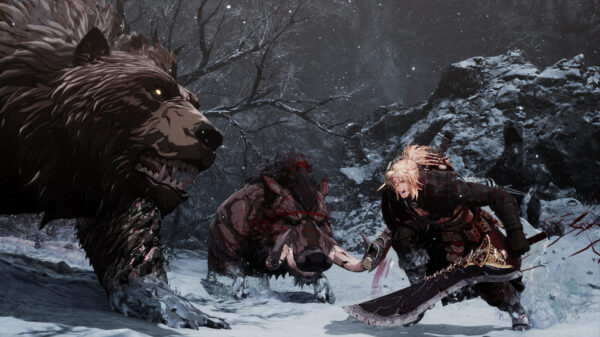
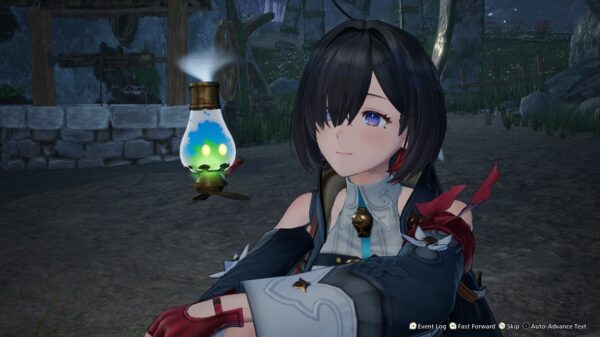


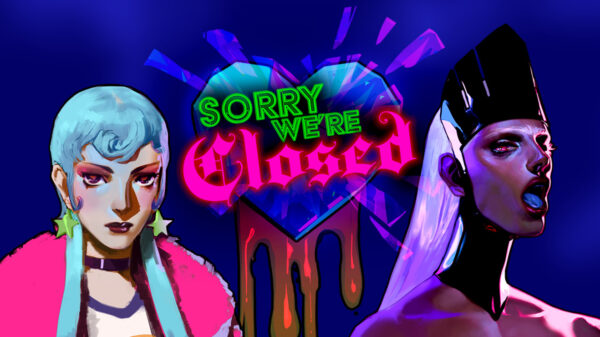

























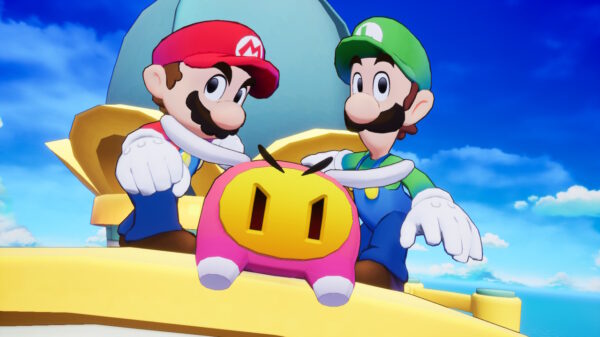


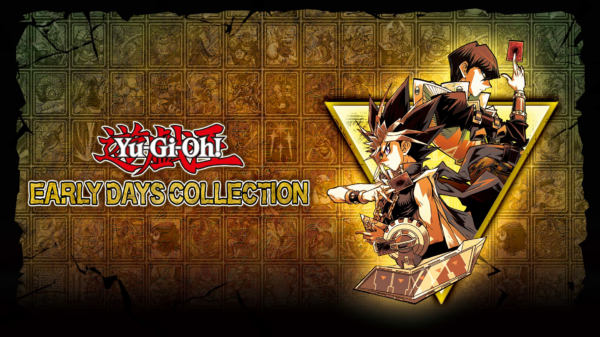



















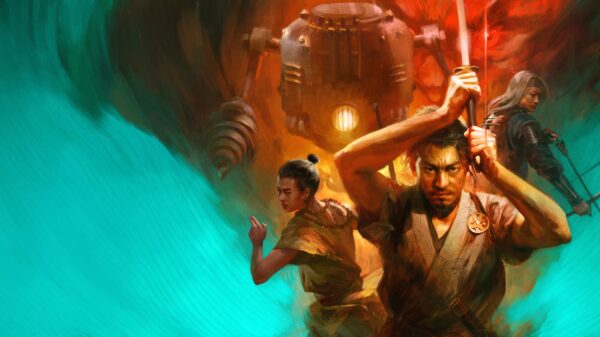
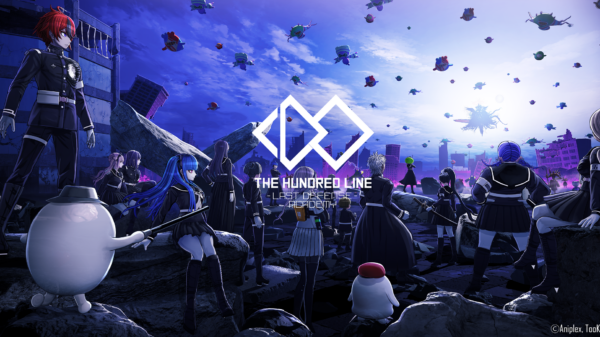




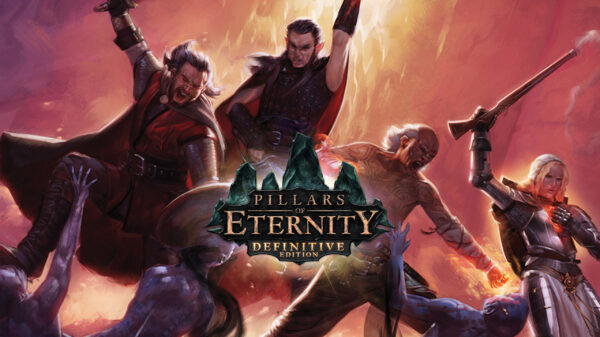
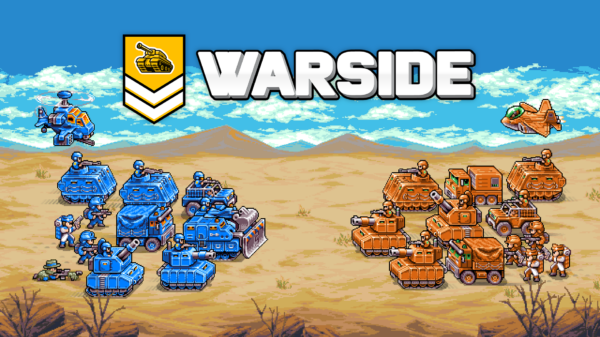
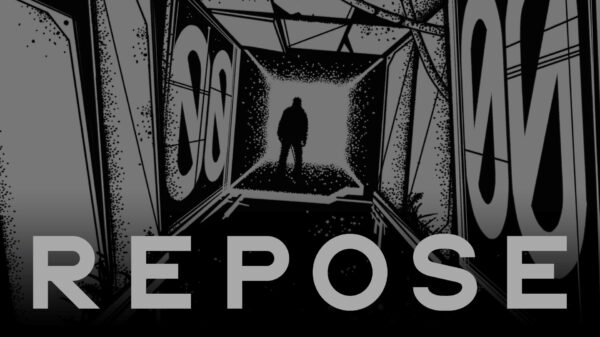

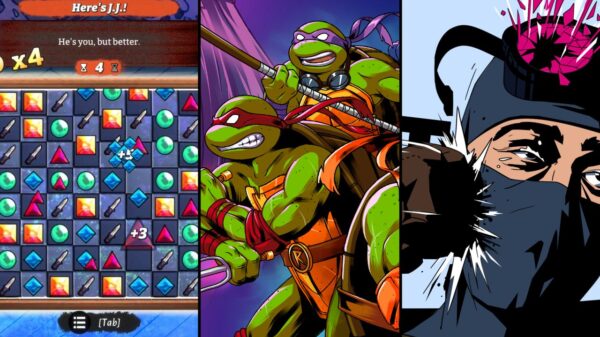
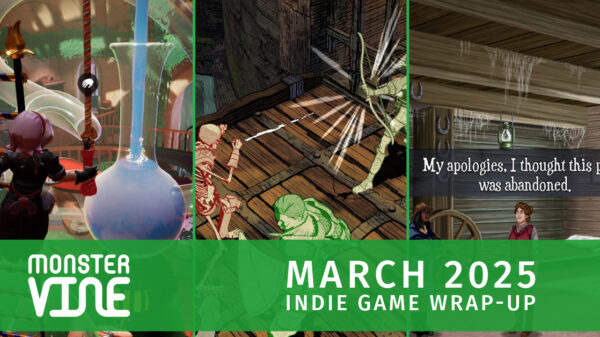



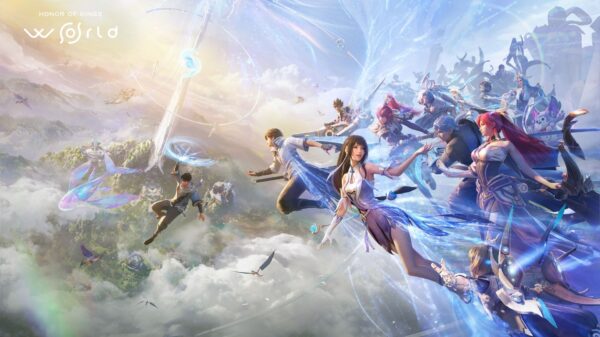


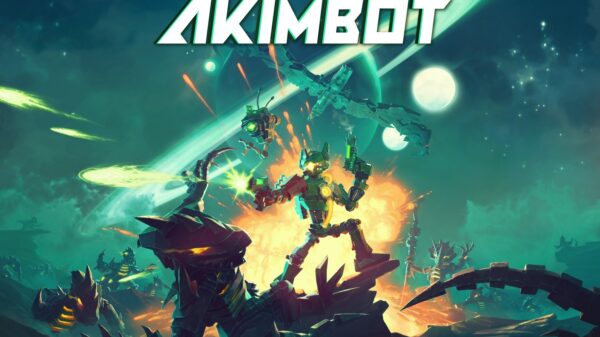

























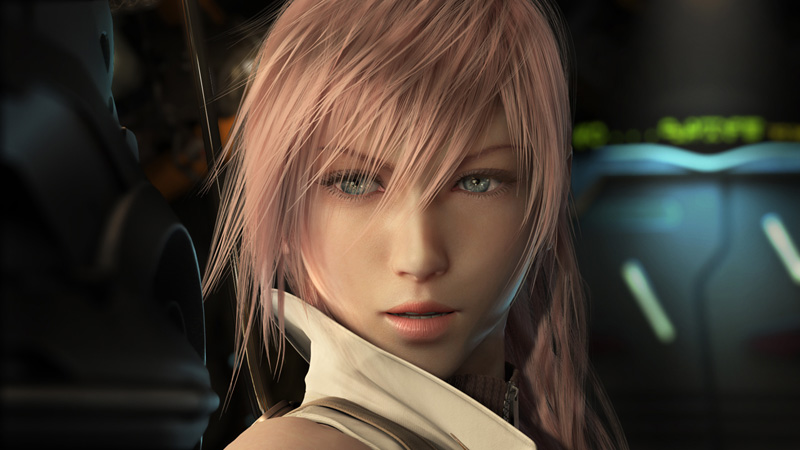





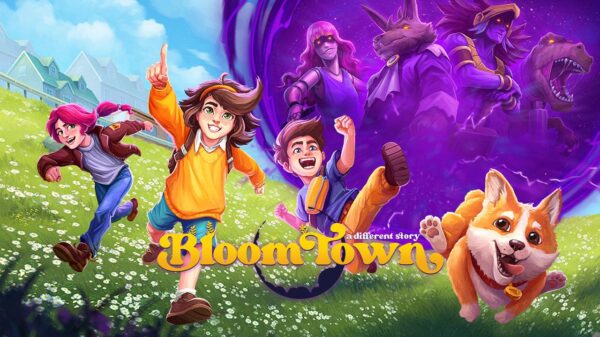

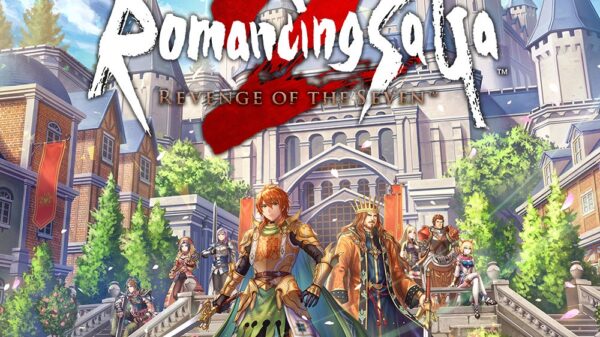

Tez
November 26, 2008 at 1:03 am
Nicely said, what a great article. Those idiots at IGN and Gamespot are beyond me sometimes
Max
November 26, 2008 at 1:23 am
ProjectSora i'm sorry IGN pissed you off. But I think you are misunderstanding their argument, from their point of view WRPG’s have been better this generation. It has nothing to do with not liking JRPG’s, they were talking up eternal sonata like crazy last year. I have I hard time seeing how Japanese culture somehow likes no variation and that it justifies being lazy.
PS: please remember that Bioware is Canadian, Lionhead is English and only Bethesda is from the US. I don’t see how that’s different from Tri-ace being Square.
k.williams
November 26, 2008 at 3:06 am
projectsora good article sticking it to the so called "unbiased" reviewers a article at a time
MarkMV
November 26, 2008 at 3:27 am
Great article, you made some great arguments, many of which I agree with.
Kraise
November 26, 2008 at 4:49 am
My, my. It's like throwing a child into shark infested waters
Sirusjr
November 26, 2008 at 5:01 am
"You're nit-picking the genre's linearity when such games that bolster the magnificence of choice don't even give you the option to choose whether or not you make choices to begin with."
Wow I can't believe I never thought about this but yes absolutely true. How about they have a default storyline and then give you choices to change things for the people who like to be given one singular story? Oh yeah thats right they think everybody wants to choose where they go and so nobody could possibly want to have this option.
At least Bioware was nice enough to give you a default main character look for people who don't want to make their own character. Haven't these reviewers realized by now that not everyone finds Fallout 3 to be some marvel of gaming that all new rpgs should be measured up against? If anything Tales of Vesperia set the new bar for next-gen rpgs.
I am also glad that last remnant basically got rid of all the stupid alive towns that western rpgs have because I can get in and out and see who has something important for me and then go on with the gameplay. Most WRPG towns are huge and unimportant filled with tons of npcs and nothing to say "oh yeah this guy is important for the main quest but the rest are just here for side quests."
If the WRPGS had such fantastic side quests that make them immersive and worth completing then why don't they make them required and make the main quest be 30+ hours long? If they were well done and actually related to some larger overarching plot then I might be interested enough to do something other than rent their games and beat the main quest in a day.
Henion
November 26, 2008 at 5:50 am
Ahem to all that
Good job guys
xDrezdenx
November 26, 2008 at 5:54 am
whole heartedly agree with everything you've said. But as I posted on the IGN comments for their article, you may want to include that neither writer has a clue how the Unreal 3 Engine works. The layers of textures loading in over the course of 2 or 3 seconds is to reduce total load time, and works the same way in EVERY UT3 Engine game including the ones Epic has made (UT3, GOW, GOW2). It is not something Square can be held accountable for or even change. Their ignorance is astounding.
Manny
November 26, 2008 at 6:18 am
wait wait wait … so what im getting as is that both xDrezdenx and the writer of this rebuttal are ENCOURAGING this kind of behavior from square enix? yes you can counter anything anyone writes. there's always gonna be some flaws with a writers article (ign) that you (you) can write a whole paper on… but thats not the point. the point is that ign wrote a great article aimed at HELPING square see whats wrong with its games nowadays. all you're doing is … going to use an example here … all your doing is rewarding a child for breaking a car window and shitting all over the neighbors yard. plain and simple. Why not encourage square by giving them a good critic? hmm? while infinite undiscovery is a fine game in my opinion the last remnant is inexcusable. FRAME RATE ISSUES UP THE WUZZAH! terrible! if youre still a brainwashed square fan then tell me this with a straight face… tell me that the last remnant can compare to the glory days of crono trigger and/or final fantasy 3 … i rest my case. peace
ProjectSora
November 26, 2008 at 6:21 am
Nope. You misread the article. I'm not saying what there aren't problems in The Last Remnant. I'm saying that making them turn WRPG isn't the solution.
Learn to read next time.
ed_dangerous
November 26, 2008 at 6:25 am
i'm sorry but JRPGs follow an outdated design and are uninspiring. turn-based combat ? random encounters on a world map? there was a time that WRPGS followed the same format (ultima4 anyone?) but slowly evolved from those roots into what we have today. linear games are outdated and technically unimpressive when standing next titles like knights of the old republic, oblivion, fallout 3 and yes even grand theft auto 3. the japanese can innovate when given the creativity to do so (look at the nintendo wii). for the most part they are satisfied to rehash the same material over and over. i gave up my console a long time ago for a PC because i wanted to play games designed by americans who were innovating the industry. the berating that the IGN editors gave square-enix is not just nit-picking. it is long overdue.
xDrezdenx
November 26, 2008 at 6:29 am
I am not encouraging anything. Simply stating a fact. That is how the Unreal Engine works when loading a level, no matter what UT3 engine game you play, even Epic made ones. So to tell Square they don't know how to use the engine because it has textures loading in like the engine is designed is assinine.
And as far as Frame Rate issues are minimal at best, the most I've had is a stutter for a split second (Granted I have it installed to the HD and that does help) so I can't complain about poor frame rates because that has not been my experience.
And that is the only part of the article I have spent time arguing over on IGN besides the fact that they want jRPG's to become wRPG's.
As far as IU goes, I have never played it, probably never will. So I cannot comment on it.
xDrezdenx
November 26, 2008 at 6:37 am
Please, KOTOR was just as linear as a jRPG. The only 2 choices you made in that game were Good or Evil and Which of the 3 available planets you went to first. It was an amazing game, I loved it, but it was still linear. Games like Fallout 3 and Oblivion almost have too much to do sometimes, yeah you can finish the game in 20-30 hours, but if you're OCD and have to complete everything 120 hours is a lot to put into a game. Thats why some of us prefer jRPG's, which are mostly linear, follow one long drawn out storyline (without 80% of the game being sidequests if you want to finish it 100%)
You can't expect EVERYONE to like wRPG's, it's just not plausible, please don't be that naive to think your way is the only way. Thats why there ARE wRPG's and jRPG's. Stick to your wRPG's if you don't like it and leave our jRPG's alone.
Kelex
November 26, 2008 at 6:44 am
"linear games are outdated and technically unimpressive when standing next titles like knights of the old republic, oblivion, fallout 3 and yes even grand theft auto 3"
Which are still linear as a whole. While you may be given some superficial choice in how certain actions might be taken, the overall impact of choice as a is more of an illusion. You still follow an underlying design that more often than not neglects your tiny decisions as being a part of the whole.
You're nit-picking the genre's linearity when such games that bolster the magnificence of choice don't even give you the option to choose whether or not you make choices to begin with. You're trying to argue that a hot dog isn't a hot dog just because you get put it on a hamburger bun.
DrunkAss
November 26, 2008 at 12:26 pm
Great Article. It just showed how ignorant the editor's were. Just because more great WRPG's are coming out this year then there was JRPG's it doesn't mean the whole genre should change.
Just like you have already mentioned, but JRPG's are aimed at the Japanese audience, these are the types of games they play. Even with some western influence, it's still a Japanese game at heart.
I'm surprised they tried to use Fable 2 as a point to saying how WRPG's are superior. While it was a good game, it was linear, NPC's had the mind of a pea, who loved you one second and hated you. You could kill his wife in front of him, then do a dance and everything will be alright. Also my version of Fallout 3 crashes at points when talking to important NPC's, and how can we forget Mass Effect and all it's graphical shortcomings and huge ass elevator scenes. All these WRPG's have had their share of graphical problems just like IU and TLR.
I personally see it as this, JRPG's are trying to change, it started with FFXII and it's carrying on now. New ideas are being brought forward, I see it being in it's first steps, a starting point for something new.
DrunkAss
November 26, 2008 at 12:27 pm
*Hated you the next
OuterCrisis
November 26, 2008 at 12:28 pm
Um….What's with the harshness, dude? Didn't you read the article? He wasn't saying that the game was perfect, he was actually taking into account that there are flaws. ProjectSora stated that quite clearly in his article. And for you not to see that, to me, shows that really, you weren't reading this article with an open mind and already had your mind decided on who the "right" one was and who was the "wrong" one. However, thanks for your opinion.
OuterCrisis
November 26, 2008 at 12:29 pm
ProjectSora, you are my hero! Well done article.
DrunkAss
November 26, 2008 at 12:38 pm
The Western market is also guilty of rehashing the same thing. Look at all the yearly releases for sport, driving and even some shooters. Ever since Halo many FPS's are become more like Halo. Resistance has done this, while the first one had a unique look and style, the second game ended up looking and playing more like Halo for no reason what so ever. If I asked someone to make a list of all the faceless nameless armour suit wearing heroes in the world of gaming it would be as big as David Jaffe's ego.
Oh look at that, I found first point for my 'The Gameplay Mechanic: Fixing The FPS Machine' article. Anyone can easily pick a genre and showcase it's downfalls. People may consider it outdated, but how long as the FPS formula been around for and how much has that change…it hasn't.
Gyuri
November 26, 2008 at 6:14 am
It's quite an interesting article…nice arguement too.
I found it funny how they claim "more is not always better" when it's not inherent to JRPGs. It was actually the reason I disliked Oblivion. Sure, it had a giant world, but it was about as immersive as a brick wall, in my opinion.
Just because a couple WRPGs turned out better than a couple JRPGs doesn't mean WRPGs are the superior subgenre. Also, they are calling SE's games worse than Western RPGs for reasons not inherent to all JRPGs.
So anyway, the IGN article is very subjective, but has some good points. Square games need improvement in some areas, but that doesn't mean they should take on the characteristics of Western RPGs. Take the good ideas from them, but don't abandon your own.
Also, Ed, claiming linear games are unimpressive is just wrong. It's just a different style of storytelling. It's like comparing cel-shaded graphics to realistic graphics and claiming one is better. A sandbox game that allows choices and such can work well, but a linear game with a perfectly constructed story could top that.
ProjectSora
November 26, 2008 at 6:40 am
Nope. You misread the article. There's always one.
I'm not saying there aren't problems in The Last Remnant. I'm saying that making them turn WRPG isn't the solution. The fact that you're advocating that "going WRPG" will help Square-Enix is astounding, and proves the entire point of this rebuttal.
WRPG =/= how all RPGs should be made. It is simply one approach.
Learn to read next time.
ProjectSora
November 26, 2008 at 7:09 am
Out of all current gen JRPGs, how many of them are turned based and have random encounters besides Lost Odyssey?
Linear games being outdated is a ridiculous notion. You're basically saying telling a story is out of fashion. Hardly the case.
This 'innovation' you speak of is nothing more than a cultural preference, and once again speaks entirely to the point of this rebuttal. Western developers make something that appeals to you and suddenly it's 'innovating the industry', while absolutely disregarding the fact that what you're referring to is simply the North American market.
The JRPG format is not outdated. You just simply don't like it.
Pingback: The Vineyard - Update #1 | MonsterVine.com
ProjectSora
November 27, 2008 at 1:04 am
Max,
There's nothing wrong with thinking WRPGs were better this generation. That's a completely fair opinion, but to suggest that Square-Enix (and possibly all JRPG developers) should just follow in WRPG developers footsteps to make their games better is an arrogant oversight. It does not justify that by making their video games 'Western', their games will 'become better'. Square has their problems, yes, but they don't need to become a WRPG to be better. They wouldn't be JRPGs anymore, would they? And again, JRPGs are made with Japanese people in mind and JRPGs have naturally done well in Japan, so obviously they're satisfying their core audience.
You're also misunderstanding what I mean by Japanese culture, but I don't blame you when I purposely made no effort to elaborate on it in this article. You're affiliating 'no variation' with 'being lazy', but what exactly are you referring to when you say 'no variation'? Are you talking about linear storytelling? Because if so, that's partially part of the cultural argument. Have you heard of Individualism vs Collectivism? That's pretty much why WRPGs are so focused on choice/free will scenarios, and JRPGs stick to a linear tale.
Also, your point about Bioware being Canadian, Lionhead being English, and Bethesda being from the U.S, you need to remember two main things:
a) My point was about the unjustified pressure on Square-Enix to become like the West in order to make 'better' RPGs. The 'West' refers to Western culture, which includes Europe, US, Canada.
b) Erik and Hilary are debating the integrity of Square-Enix specifically, not Japanese developers in general. So if they're going to criticize a specific developer, at least use examples from games they actually developed.
pheonix308
November 30, 2008 at 3:26 am
(I'm trying to see this with an open mind here and no hostility)
With that being said, I have a few problems with both articles,
1- I agree both cultures are different and will have differences, but as for the linear designs of JRPGs, shouldn't we be able to claim that the only reason why games started out as linear was because the technology didn't have the memory to offer say…. more than one storyline ending? (Disgaea or Shadow Hearts anyone?) <——- not Square Enix material but you get the point
Plus, even there, dosen't the culture argument kind of fail since the japanese were renound philosophers? Wouldn't that justify the right to choose your own "alignment" in the form of a philosophy? (SMT3 NOCTURNE!!!! And although it is western, I think Jade Empire deserves a small mention)
pheonix308
November 30, 2008 at 3:27 am
2- Okay, there may be a lot of truth when it comes to the "More Is Not Always Better" point of view, because I can see how a supreme general *should* be more powerful than mercenary#4 of said academy, but shouldn't said Merc be offered a chance (here comes a bit of fanboy-dom) because if we follow a popular Japanese Franchise: DragonBall, the main character; Goku became stronger than the prince (see:elite) of his entire race. Don't take me too much into context here, I just mean that if the mercenary was trained enough, why wouldn't he have the option of ever becoming equal to or stronger than the general? (Best example: Disgaea 2, where my most powerful character is a sword wielding character I named after myself XD)
P.S. A small thing that bugged me about the whole thing (not really a comment) Dosen't Fable 2 count as an Eastern RPG? (since England IS in the east) I don't know why everyone refers to it as a WRPG (don't blast me for this one, it's just a question)
pheonix308
November 30, 2008 at 4:08 am
Alright, I see your point, thank you for the answer
Max
November 30, 2008 at 12:23 pm
ProjectSora,
I went back to see if you had answered me, apparently you had. Don’t get me wrong I don’t think Eric and Hilary’s article was great, it was run of the mill. I didn’t get the impression that they wanted JRPG’s to be WRPG’s, but I can see how you would come to that conclusion. My personal opinion is that Japanese developers have become somewhat lazy and by that I mean they need some new ideas to their game design or at least remove old mistakes they keep making. Such as grinding, deep but ultimately poorly executed story lines, linearity to the point of it breaking immersion etc. I’m not saying all JRPG’s do this, but it is a persistent problem even in some of the best titles. I think Japanese developers can learn without stealing. For example: make linear games while hiding it and using it better, make less towns and put more effort into each and VO in everything. Most of that I get from Mass Effect, to me it isn’t as important for JRPG’s to keep they style because as long as the games are made by the Japanese they will.
A lack of variation is linearity, it seems like you always lead the debate back to WRPG’s vs. JRPG’s which isn’t what this is about. I don’t normally like Shooters to much, but I think COD 4 has a great campaign that never get’s old and it’s as linear as Eternal sonata. Variety is about not straining the mechanics of your game design, which is my biggest problem with JRPG’s at the moment. Things like grinding and confusing quest objectives lead to the design crumbling as if an earth quake hit it.
Sure Eric and Hilary may have entitled the article wrong, but that doesn’t matter. You said it yourself JRPG’s haven’t been up to the standards set by WRPG’s and now that WRPG’s are available on consoles as well as PC it’s a battle and JRPG’s are being killed. I’d like there to still be JRPG’s in 2013, but at the rate they are evolving they don’t stand a chance.
ProjectSora
November 30, 2008 at 4:21 am
While Erik and Hilary may not have intended for JRPGs to become WRPGs, it is certainly the point they were making after all was said and done, regardless if that was their intention. In fact, I actually believe they have no idea that that is what they're implying, because like you've seen with many of these other posters; they are completely oblivious to the Western bias they possess when they criticize JRPGs.
You reference Mass Effect as having most of the things that JRPGs as of late seem to lack, but I have to disagree when Mass Effect in my opinion lacked the very thing that JRPGs were known for the most–that is delivery of the storyline. Yes, I'll admit that storytelling has not been up to par in the last few JRPGs that I played, but it's also true that Mass Effect–because of its several diverging paths–no one path is particularly compelling. This is because they had to sacrifice intricacy of presentation for flexibility of choice. Most of Mass Effect's 'cutscenes' were simple camera shifts from one character to another while they engaged in conversation. It's not quite as primitive as visual novel cutscenes like in Enchanting Arms, let's say, but it's not quite off the mark. While Mass Effect can say they voiced practically every scene in the game, to me it doesn't really change the fact that the script/dialogue suffered due to the flexibility the storyline required. No particular exchange was breathtaking, nor any single line of dialogue showing emotional appeal. But that's enough of that point since I only brought it up because it just highlighted the problem of linear vs sandbox storytelling.
Also, where did I say that WRPGs raised the standard? I said there is nothing wrong with "thinking" that WRPGs are better than JRPG, since that is an opinion, just as how I still enjoy JRPGs way more than I do WRPGs. Thinking so is my right just as it is someone else's right to say they enjoy WRPGs more than JRPGs. What I did call into question was the notion that JRPGs can be improved by following a Western approach to story-telling, which I believe is the major flaw in Erik and Hilary's article. There is no question that that is practically what they were saying when telling Square-Enix to play Fallout 3, Fable 2 and Mass Effect, regardless if they were aware of that or not.
As for your last point, this is where once again Western bias has shown. You say you want JRPGs in 2013 but at the rate they're going "they don't stand a chance". In case you were unaware, JRPGs have thrived in Japan just as much as they did 20 years ago when FF first started. Both Infinite Undiscovery and The Last Remnant have drastically raised 360 sales in Japan, meaning they still greatly enjoy them, even if it means buying a console that is completely unpopular over there. Increased 360 sales because of these two games means that Japanese people are willing to go as far as buying an entirely new console just to play JRPGs So when you say JRPGs don't stand a chance, you're really just talking about the North American market. Just because JRPGs aren't doing as well in North America, that does not mean Japan is going to stop making JRPGs. That's a bit of an arrogant statement considering JRPGs are not primarily made for North Americans. What you're saying '[doesn't] stand a chance' are the localizations, and *that* is a legitimate concern.
ProjectSora
November 30, 2008 at 12:48 pm
Japanese having roots in philosophy does not justify that they would 'prefer' choosing their own alignment. Your correlation doesn't really have much basis when philosophy doesn't definitively mean free will/choice.
Also, the cultural argument has to do with Individualism vs Collectivism, which is a major difference between the West and East in terms of what they value and how they interact with others. Again, I didn't go into that argument because it would require far too much discussion with something that takes a large tangent.
ProjectSora
November 30, 2008 at 12:52 pm
The difference here between the Mercenary #4 and Goku is that Mercenary #4 is not supposed to be a main character. Think about how the recruit system works in Last Remnant. You merely talk to a Guard, and you choose a bunch of characters from a list. There is no back story about them, not about their lineages, origins, etc. The mercenaries in The Last Remnant are supposed to be nothing more but 'assistants' in your battles, to complete your unions and add collectively to your overall party damage. Unlike Goku, who not only has a detailed back story, but he's also the main character of the entire series. So it matters little that Goku was a commoner while Vegeta was a Prince, when the series to begin with was always going to be about Goku. Should you be given the option? Sure, why not, it would've been nice, but the fact that Erik and Hilary found fault in there not being such an option is minuscule.
Lastly, you misunderstand the terms East and West. West refers to 'Western culture' which pertains to primarily anglo-american ethnicities. This includes North America and Europe. "Eastern culture" refers to primarily the countries of Asia.
Max
December 2, 2008 at 10:10 am
I think we are finding some common ground here, but first I’d like to correct a few points and elaborate.
Sure some people have mocked MGS 4 and called it this that and the other thing, using some of the same arguments as they do against JRPG’s. Personally I don’t find it the least bit annoying. I don’t however think that people compare the two or that linear storylines are bad. Although from a purely hypothetical point of view you could state that since Videogames are interactive it is therefore a mistake to take that away by making a linear game and thereby making the interactions predetermined. If someone were to state a valid argument against the Metal gear story telling then I’d consider it, but I have yet to encounter that.
Gears of War 2 and Halo 3 were simply examples of popular western games that I don’t like, as “proof” if you will that I do not prefer western games.
The Japanese market is in a decline of sorts which forces companies who are strongest in Japan to seek other markets. Rising development costs force them to do this aggressively, with the trend of JRPG’s falling behind it could become a problem for developers in Japan.
”I'm not dismissing the argument. Rather, I'm dismissing the points of justification brought forth by Erik and Hilary” if this is your attempt? Then your article does disservice to your argument, it’s very “aggressive” and for the most part you seem to disagree with everything. I agree that the title is wrong, seeing as how they seem to shift between Square and the rest of JRPG development. The segment called “Learn to use the Unreal Engine” seems redundant in that if any development house has to use any engine they need to know how to use it, however releasing a game that barely runs unless you install it to your HDD is pretty inexcusable. Claiming that IU utilizes the Unreal engine is also a pretty big error, something they probably got from their own website as it is stated on the profile of the game. I have stated before what I think they got right and will not retread old ground. What I tried to do was to take the “premise” of the IGN article and argue for what I think it should have been. Because I think it’s important to have this discussion.
Max
December 2, 2008 at 12:18 pm
I never said JRPG’s had to adopt the WRPG’s style of story telling and for the sake of argument neither did Hilary and Eric. I don’t think encouraging Japanese developers to play WRPG’s is the same as trying to make JRPG’s into WRPG’s. For example Ryan Payton introduced Kojima Productions to COD4 and other western games and that (to the best of my knowledge) made them improve their game design, specifically MGS 4’s controls. The game was still as Japanese as ever only with a few of the elements that western developers have successfully implemented over the last few years and it was all the better for it.
I don’t agree that Mass effects dialog suffered under the sandbox style as you call it, but that is very subjective. To me Sandbox implies that you are given certain tools and then let loose on a world with few rules, personally I prefer the use of non-linear as it more accurately refers to the western style of story telling. I’m not trying to correct your language, just my personal opinion.
I’m not trying to impose on your freedom to say what you want; if I was then I wouldn’t be arguing with you.
As for my previous last point, I guess I have to elaborate. First of all; you seem to focus on North America a lot and western bias, let me just set the record straight. I’m Danish and I do not endorse games like Halo 3 and Gears of War 2 which to me are just American stupidity on DVD-ROMs. Second of all; I do not favor Western games in fact my favorite developer of all time is Hideo Kojima, what I would like and frankly what I think is needed is for the lessons western developers have learned to transfer to Japan. Not entire concepts, genres, artistic styles, stories or basic gameplay ideas. Things like presentation having all characters talk, making invisible walls less apparent and quality over quantity. I personally don’t think Japanese developers are a lazy bunch, but it is being misinterpreted by the masses and who can blame them? I don’t think Japanese developers know why their games are less popular now than years ago. The problem being that the genre is being abandoned by gamers in the west, and with the cost of doing a top of the line RPG now a days we will see less and less Chrono triggers coming out of left field. My hypothetical JRPG’s are dead in 2013 statement, was simply an exaggeration to suggest that the genre is in a decline. Sure the 360 experienced a brief sales spike in Japan, but much like JRPG’s it isn’t the king of kings anymore. Winning or loosing Japan isn’t really something companies care about and that exemplifies how the market has changed. That in combination with the heightened costs will see familiar brands and designs dominate this will most likely happen everywhere, but I suspect JRPG’s will suffer under this (more than WRPG’s that is) if they do not change.
Finally I suspect the “bias” you seem to refer to coming form yourself, sure the IGN article wasn’t the best and you might have a point in not trying to force Western and Japanese RPG’s to overlap. But it seems like you dismiss all arguments with these same claims of bias or hatred towards Japanese culture. I don’t want to offend you; however that is my understanding of the situation.
ProjectSora
December 2, 2008 at 4:12 am
You state yourself as a Hideo Kojima fan, but are you aware that MGS4 has been sourly mocked by the very same people who hate linear story-telling? "MGS4 is not a video game" is the common phrase I've been hearing about the game.
Sure, I understand your correction of non-linear, but I still believe the intricacy of the storytelling suffered as a result. When I compare the cinematic presentation of MGS4 in comparison to Mass Effect's, this toll becomes obvious. But I'll agree that judgment of how well a story is told remains to be an opinion, so I'll leave it at that.
Onto your next point, Halo 3 and Gears of War 2 are not console RPGs. They are categorized as First/Third Person Shooters, so I'm leaving those titles out of the argument since we are debating the genre of RPGs.
"Winning or loosing Japan isn’t really something companies care about and that exemplifies how the market has changed."
I don't understand why you are focusing on companies 'losing' Japan, when the process is the complete opposite. JRPGs are first made in Japan, then localized to NA and Europe. These 'companies' can't lose Japan if Japan is the core audience they've been pleasing for over 20 years.
If that is your understanding, then I'll kindly tell you that you are mistaken. On the contrary, I feel like you give Erik and Hilary far too much credit. Your stand-point is a valid one, but I fail to see the same level of accurate criticism in the points brought forward by Erik and Hilary. Rather, the points they might have been trying to make may be valid, but they have used the wrong examples to justify it.
The fact that I agree that JRPGs need to change is proof enough that I'm not dismissing the argument. Rather, I'm dismissing the points of justification brought forth by Erik and Hilary, because many of them were completely flawed and are quite frankly, untrue. In particular, "Learn to Use the Unreal Engine" (and I hope you can agree) is completely irrelevant in fixing the JRPG design–not to mention their completely untrue fact that IU used the UR3 engine. Their claim of CGs ruling the RPG world in the past is completely untrue as well. I actually agree with evolving the RPG elements, but the points they've used to explain why or how they should improve it had little foundation. Naming an NPC "Jim the Barber" hardly brings more meaning to him being there, and their criticism of uninspiring city designs, "[having] towns you walk around in, with dozens of people you speak with for no reason. There are poorly conceived fetch quests and uninspired city designs" could easily be said about WRPGs by someone else and be just as 'valid'. I won't repeat the last two points since they're in the article above.
Conclusively, this is not a dismissal of an argument, rather it is a criticism of the method used to debate it. JRPGs need fixing, that much is true. But the points brought forth by Erik and Hilary to justify it have been based on either completely untrue facts (IU using the UR3 engine; CG ruling the RPG world 'back in the day'), irrelevant facts (Learning to use the Unreal Engine does not = good JRPG; mercenaries in LR were not stronger than the main 6 heroes because they were meant to assist you, not steal the spotlight), or points that could easily be said about the very titles they were praising ("uninspiring city design, towns you walk in, people you talk to for no reason"). I feel it is important that if you're going to criticize something, use not only correct information, but use factually relevant information. Showing that Erik and Hilary failed to do any of this was the purpose of the article I wrote.
ProjectSora
December 3, 2008 at 3:14 am
No doubt, I've already considered your points as valid, but I suppose it bothered me when you kept insisting that what you were saying were also what Erik and Hilary were trying to insinuate, which I think is untrue.
As for the Japanese market, if we are to consider Square-Enix specifically, since it is the developer that has been called into question, then it's untrue to say the Japanese market is in decline when just about every single title developed by Square-Enix has produced sales that have been relatively consistent since X. It's true that both IU (although not developed by SE) and LR haven't sold as well as previous SE titles like FFXII and FFX, but the figures are convoluted by the fact that the 360 is not a popular console choice of the population. Also good to note is that virtually all SE titles have done significantly better in Japan than in North America. This is astounding when you consider that America alone more than doubles the population of Japan. And because sales have remained consistent for SE since they debuted X on the PS2, no doubt this does not make this 'need' for change as drastic as many here in the West claim JRPGs need. Again, I'm not saying JRPGs don't need to improve, because they do, but if we're discussing the Japanese market when it comes to JRPGs, I hardly recognize a decline.
I won't deny my article is aggressive, but I don't think that 'defines' the notion that I felt JRPG didn't need to change. Not once in my entire article did I say "JRPGs don't need fixing", nor once did I explicitly say "JRPGs are better than WRPGs". Rather, I used words like 'irrelevant' or 'untrue' in the context of the points they said. I am very welcome to people criticizing the JRPG genre, but use points that make sense. You sir, have done such a thing when you referenced COD4's campaign as an example. They did not.
As well, I don't see how my article has done disservice to my argument–which was to dismiss the points of justification brought forth by Erik and Hilary–simply by being 'aggressive'. I feel that I certainly did dismiss their points, and I don't think me being any 'kinder' about it wouldn't have changed any of the facts I brought forth.
And I thank you for taking the 'premise' of the IGN article and formulating a far better rounded argument that supports why JRPGs need to change.
Pingback: MonsterVine Forums have launched! | MonsterVine.com
Max
December 4, 2008 at 7:45 am
Well it was an interesting argument.
Patrick
January 26, 2009 at 8:13 am
I don’t agree that western RPG’s are as good as these people say they are, but I do agree that square-enix as it is now sucks balls. The only good game from them so far that I can think of is The World Ends With You. And even then that’s not big production.